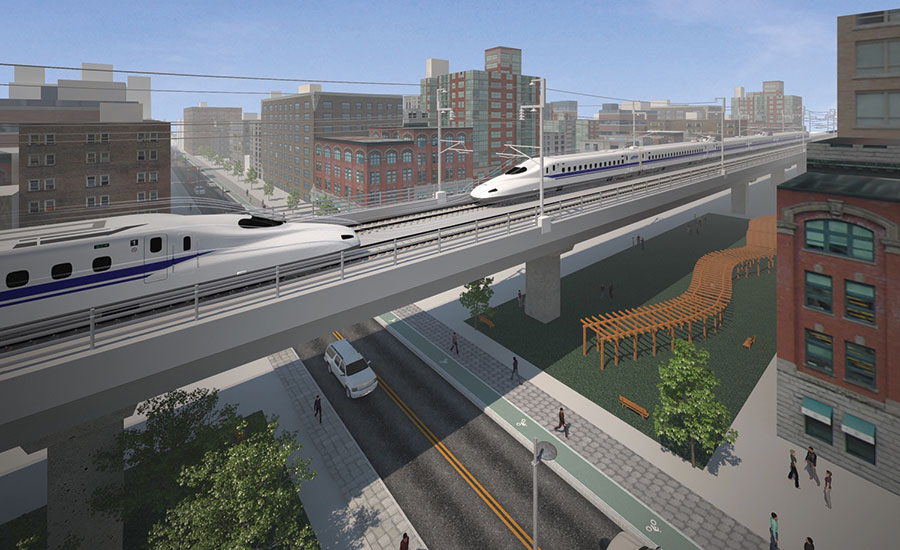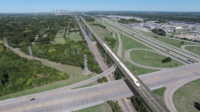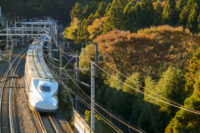A joint venture of Milan-based contractor Salini Impregilo and its U.S. subsidiary Lane Construction Corp. have won a $14-billion design-build contract for the planned high-speed rail project to connect Dallas and Houston, with a total estimated cost of some $20 billion.
Salini-Lane will provide civil and infrastructure scope for the project, which includes design and construction of all 131 viaduct sections and 130 embankment sections along the 240-mile route, installation of the track system, and construction of all buildings and services that will house maintenance and other equipment.
“The terrain between Dallas and Houston is flat, with no major barriers such as mountains that would oblige us to excavate tunnels or build complex structures,” says Pietro Salini, CEO of Salini Impregilo. “So the main guideway is the horizontal superposition of viaducts and embankments. Also, Salini Impregilo is designing standard precast solutions for most of the viaducts in order to facilitate their construction.”
The design-build agreement also authorizes a set of early works for the joint venture to continue advancing engineering design, detailed planning, interface definition and other key prerequisites necessary to start construction.
“We have a full contingent of folks here working with us in developing all the operations and maintenance requirements and contracts for the deployment of the system,” says Carlos F. Aguilar, CEO of Texas Central. “Our goal is to get the final contracts and prices by December.”
On the regulatory side, all work has been completed on the environmental permits, so Texas Central is now waiting for the final environmental impact statement and approvals, which are expected by the second quarter of 2020.
“The idea is to have financial close by June 2020,” Aguilar says. “We expect construction to follow soon thereafter.”
The Federal Railroad Administration also granted Texas Central's petition for a Rule of Particular Applicability in early September. This comprehensive set of custom rules will be applicable specifically to Texas Central and used to govern the railroad’s system and operations between Houston and Dallas.
This safety rulemaking “is very significant because it will allow us to deploy the technology in the U.S.,” Aguilar says.
The Texas train will be based on Central Japan Railway’s Tokaido Shinkansen train system, which has transported more than 10 billion passengers over 54 years with zero fatalities or injuries.
Texas Central recently received “three very strong bids” for the construction of train stations in Dallas, Houston and the Brazos Valley, Aguilar says. “We can’t disclose names, but they’re all big players in that sector in the U.S. that will complement the others we have already shared.”
At peak—which is expected to last five years or more—the project will employ around 10,000 people, including about 1,500 highly skilled technical jobs.






Post a comment to this article
Report Abusive Comment